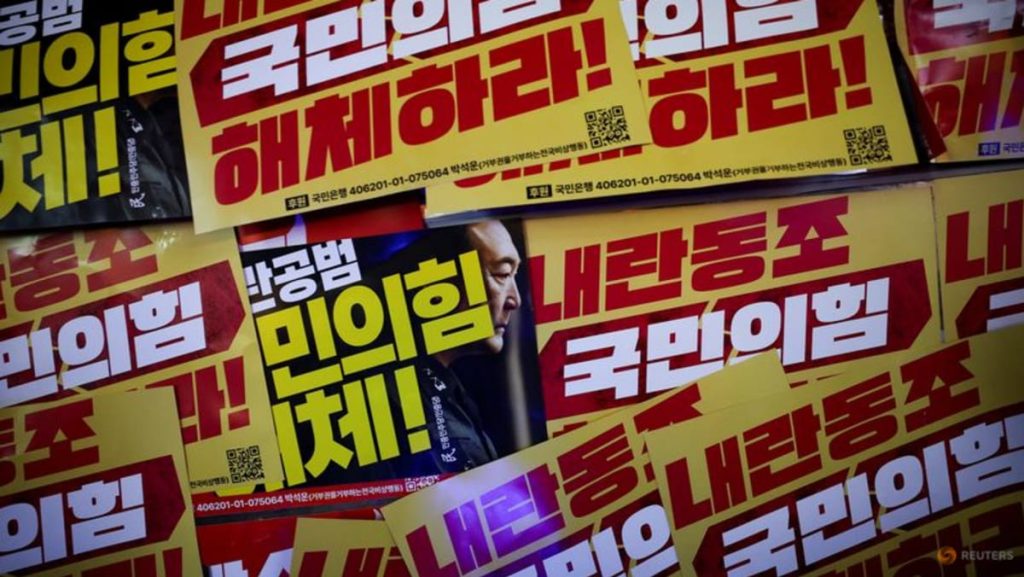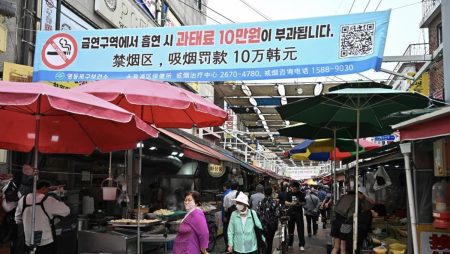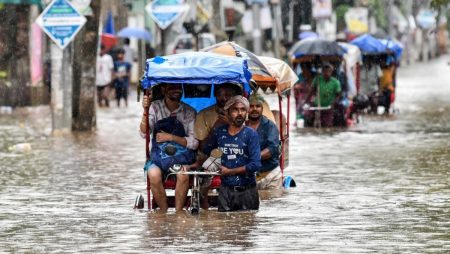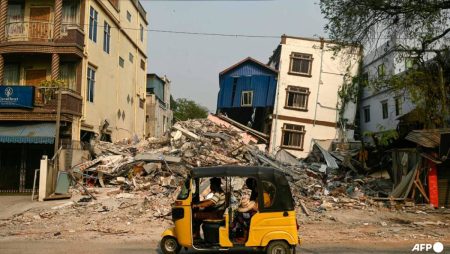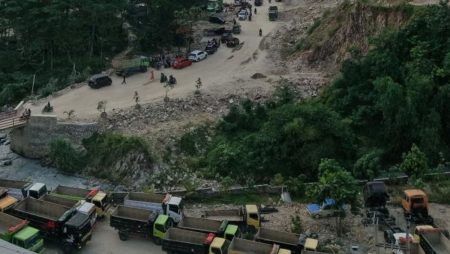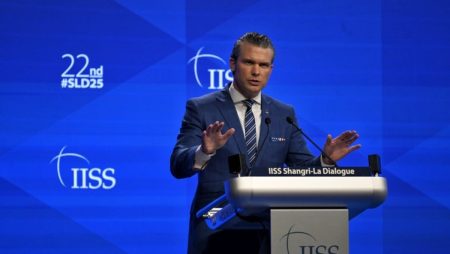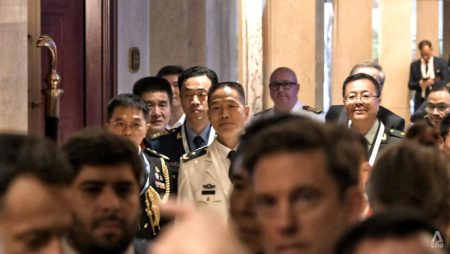The political landscape in South Korea is currently embroiled in a high-stakes drama centered on the impeachment efforts against President Yoon Suk-yeol and the arrest of former defense minister Kim Yong-hyun. Kim’s arrest stems from serious allegations leveled by opposition lawmakers, painting a picture of a minister willing to escalate tensions with North Korea to potentially justify the declaration of martial law. These allegations include claims that Kim ordered strikes against North Korean sites launching propaganda balloons, an order reportedly disobeyed by subordinates who recognized its potential to ignite a dangerous conflict. Even more alarming are accusations that Kim directed drones towards Pyongyang, seemingly aiming to provoke a North Korean response that could then be used as a pretext for imposing martial law. These actions, if proven true, raise profound concerns about the stability of South Korea’s political processes and the precariousness of inter-Korean relations.
The accusations against Kim Yong-hyun have injected a volatile element into an already tense political climate. President Yoon, facing mounting public discontent and an ongoing impeachment drive, is now burdened with the fallout from his former defense minister’s alleged actions. The opposition’s push for impeachment gained momentum amidst widespread protests against Yoon’s policies, creating a scenario where the government’s stability is increasingly threatened. Kim’s alleged actions, if viewed as an attempt to bolster Yoon’s authority through manufactured crisis, could significantly undermine the president’s already precarious position and further galvanize the opposition. This complex interplay of domestic politics and international security concerns has created an exceptionally delicate situation on the Korean peninsula.
North Korea’s relatively muted response to the unfolding drama in the South has been noted by analysts. Yang Moo-jin, president of the University of North Korean Studies in Seoul, suggests that Pyongyang’s restraint might stem from its perception of the situation as an internal South Korean matter, potentially a “unlawful rebellion.” This interpretation signals a calculated decision by North Korea to avoid escalating the situation, possibly recognizing the potential for miscalculation in a highly charged environment. Another factor contributing to North Korea’s cautious approach could be its current commitment of troops to Russia, diverting resources and attention away from the Korean peninsula. This external engagement might be influencing Pyongyang’s decision-making, prioritizing its relationship with Russia and minimizing the risk of diverting resources or attention to a potentially volatile situation in the South.
The relatively calm stance adopted by North Korea, however, does not preclude the possibility of future reactions. The dynamics of the situation remain fluid, and Pyongyang’s calculations could shift if the internal political conflict in South Korea intensifies or if it perceives a direct threat to its security. The alleged actions of the former defense minister, particularly the drone incursions, could be viewed as highly provocative by North Korea, and the potential for miscalculation remains a serious concern. Furthermore, the deployment of North Korean troops to Russia, while currently a factor in its cautious approach, could also become a source of instability if those troops are recalled or redeployed. The evolving relationship between North Korea and Russia adds another layer of complexity to the situation, making it difficult to predict how Pyongyang might react to future developments in the South.
The impeachment efforts against President Yoon represent a significant challenge to his leadership and further destabilize the South Korean political landscape. The opposition’s persistence in pursuing impeachment, even after surviving the first motion, demonstrates their determination to remove Yoon from office. This sustained pressure raises questions about the long-term viability of Yoon’s presidency and the potential for further political turmoil. The ongoing protests and public dissatisfaction with Yoon’s policies indicate a deep-seated division within South Korean society, further complicating efforts to address the current crisis and maintain stability. The combination of internal political strife and the uncertainty surrounding North Korea’s response creates a precarious situation with significant regional and international implications.
The convergence of these factors – the accusations against the former defense minister, the impeachment efforts against President Yoon, and North Korea’s calculated restraint – has created a complex and volatile situation on the Korean peninsula. The potential for miscalculation and escalation remains a significant concern, and the international community must remain vigilant in monitoring the evolving dynamics. The internal political struggles within South Korea have created an environment ripe for uncertainty, and North Korea’s response will be a crucial factor in determining the future trajectory of the situation. The coming days and weeks will be critical in determining whether the current tensions escalate into a larger crisis or whether a path towards de-escalation and stability can be found. The interplay of domestic politics, inter-Korean relations, and international dynamics will continue to shape the unfolding drama on the Korean peninsula.




